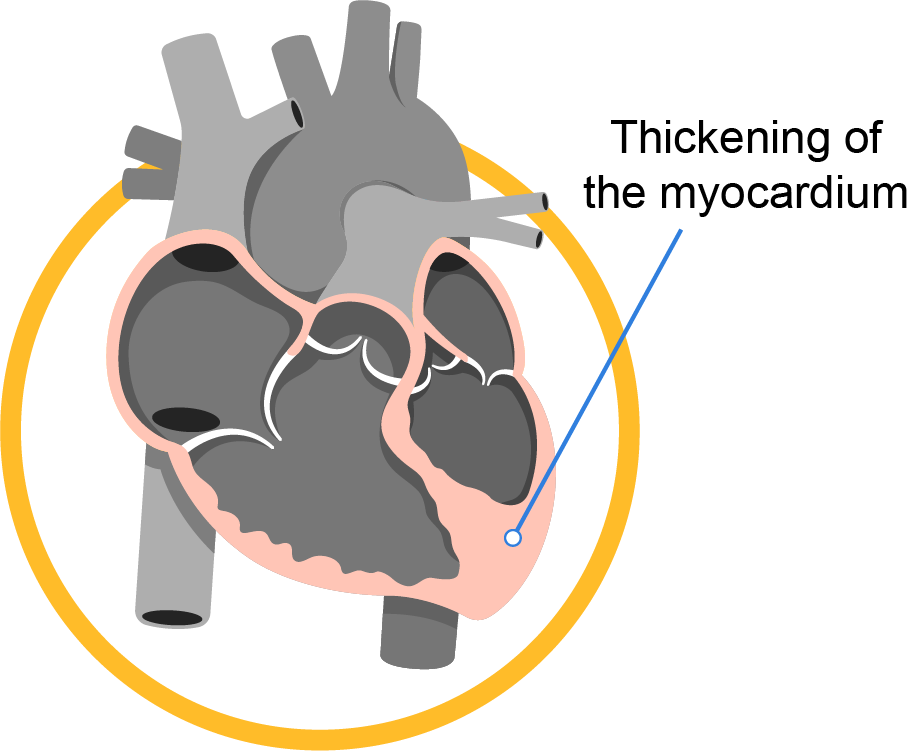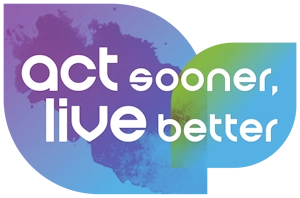
Cardiomyopathy is a term used to describe a disease of the cardiac muscle. The three main types include:
- Hypertrophic cardiomyopathy: The heart muscle gets abnormally thick of the heart muscle
- Restrictive cardiomyopathy:The heart muscle gets stiff and/or scarred
- Dilated cardiomyopathy: The left ventricle of the heart gets enlarged and weakened
Damage to the heart makes it more challenging for it to efficiently supply blood to other parts of the body. Cardiomyopathy, if left untreated, can result in heart failure and the potential need for a heart transplant.
Causes
Often, the cause of cardiomyopathy is unknown. It may even be inherited in certain cases. Possible causes include:
- Complications during pregnancy
- Connective tissue disorders
- Infections that cause the heart to inflame
- Accumulation of proteins that replace normal muscle tissues in the heart (amyloidosis)
- Growth of lumps of inflammatory cells in the heart and other important organs, which increase the risk of cardiomyopathy (sarcoidosis)
Signs and symptoms
Cardiomyopathy may not display any signs or symptoms until the condition has progressed, as is the case with many cardiovascular disorders. When they appear, they typically include:
- Shortness of breath
- Fatigue
- Coughing when lying down
- Lightheadedness or fainting
- Quick, fluttering and thumping heartbeat
- Discomfort and pressure in the chest
- Swelling in the legs, feet and ankles.
- Abdominal bloating caused by an accumulation of fluid
If symptoms are not treated, they typically worsen. Cardiomyopathy can gradually worsen over many years in some situations, while it may progress rapidly in others.
Risk factors
- Genetics/Family history
- Obesity
- Diabetes
- Excessive use of alcohol
- Use of cocaine or amphetamines
- Long-term hypertension
- Excessive accumulation of iron in the cardiac muscle (haemochromatosis)
- Past heart attacks and/or damage to cardiac tissues
Diagnosis
- Physical examination
- Evaluation of medical history
- Chest X-ray
- Treadmill stress test
- Echocardiogram
- Electrocardiogram (ECG)
- Cardiac magnetic resonance imaging (MRI)
- Cardiac computed tomography (CT) scan
- Cardiac catheterisation
- Blood tests such as thyroid, kidney and liver function tests as well as iron and B-type natriuretic peptide (BNP) measurements
- Genetic screening or testing
Treatment options
- Medicines that assist the heart in pumping blood more efficiently, increase blood flow, and lower blood pressure
- Nonsurgical procedures such as radiofrequency ablation and septal ablation
- Surgical procedures such as:
- Surgically implanted devices e.g., pacemaker implantable cardioverter-defibrillator (ICD) and ventricular assist device (VAD)
- Surgeries e.g., heart transplant and septal myectomy
Prevention
You can reduce your risk of cardiomyopathy by practising heart-healthy lifestyle habits such as:
- Limiting your consumption of alcohol
- Avoiding the use of cocaine
- Controlling your hypertension, sugar and cholesterol levels
- Keeping a healthy diet
- Regularly exercising
- Getting sufficient sleep and rest
- Reducing your level of stress
Visit your nearest Gleneagles Hospital to learn more about our Cardiology Services
References:
- Available at https://www.cdc.gov/heartdisease/cardiomyopathy.htm [Accessed on 9 May 2022]
- Available at https://www.mayoclinic.org/diseases-conditions/cardiomyopathy/symptoms-causes/syc-20370709?p=1 [Accessed on 9 May 2022]
- Cardiomyopathy- Diagnosis. Available at https://www.mayoclinic.org/diseases-conditions/cardiomyopathy/diagnosis-treatment/drc-20370714?p=1 [Accessed on 11 May 2022]







